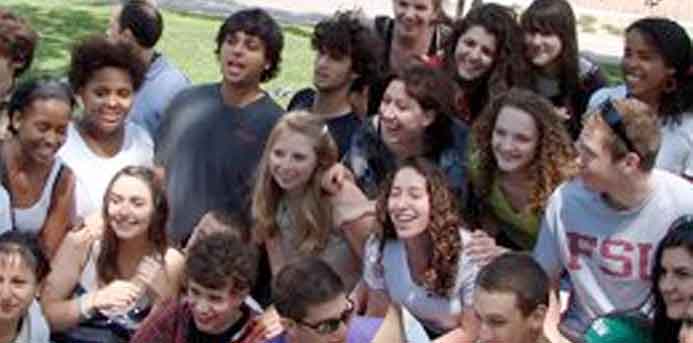ETHS graduate Adam Chernoff is on his way to Tulane in the fall, armed with a unique senior experience that expanded his worldview.
He attributes his skills to Senior Studies, an interdisciplinary class that combines English, History and Service Learning with competencies such as independent learning, public speaking and accountability in a two-semester format. Program directors Steve Newman and David Allen say the program, which is now in its 12th year, helps prepare students for success in college, where self-reliance is critical.
“The students have mastered the reading and the writing, but not necessarily learning and thinking independently,” Allen says. “Why not let kids give it a try now, while they have a built-in support system.”
During the first semester, students spend time in and out of class learning community activism, local history, education, and crime and punishment. Their study culminates in group projects where they are challenged to create a plan for an inner-city school. They also spend one class a week at a community service site.
Then, during the second semester, students work on independent study projects, while continuing community service. Examples of 2010 Senior Studies projects include researching and replicating a famous guitar, researching and experimenting with bio-fuels in a Northwestern lab, and Chernoff’s project: composing rap lyrics on pivotal events in U.S. history.
“The class gave me the time to do a creative project that I had been wanting to do and helped me to buckle down,” Adam says. “Senior Studies also got me thinking about how the world outside high school, especially those who have less than me.”
Priscilla Ruiz chronicled the experiences of her peers for a video project, “True Life: I’m a Senior,” modeled after a popular MTV show. Her project documented the challenges and successes of two boys and two girls during their senior year. She called the independence she was granted “a privilege that was motivating.”
For parents who worry that high school seniors might take advantage of so much free time, that’s all part of the experience, according to Newman.
“We do get questions from parents who say, ‘Gosh, these kids are out there on their own, how do you trust them?’” Allen says. “But that’s what draws the students—they’re trusted to do adult-like things in the real world. Seniors don’t want more of the same. If you do it with the right balance and structure, it works.”

